Maternal health
Highlight
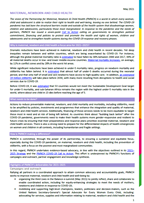
Maternal mortality
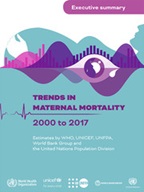
UNFPA and partner report: Trends in Maternal Mortality 2000-2017
This Executive Summary provides a snapshot of the contents of the Trends in Maternal Mortality: 2000 to 2017 report, which shows internationally ...
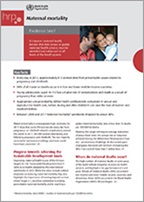
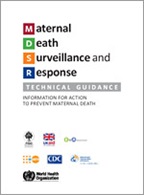
Most maternal deaths are preventable. In order to end preventable maternal deaths, accurate information on how many women died, where they died and how...
Quality maternal health care
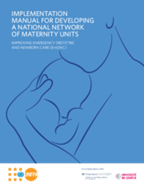
UNFPA guide: Developing a national network of maternity units
Maternal mortality is decreasing globally, but not fast enough and with critical inequalities across the regions of the world. Dying while giving birth...
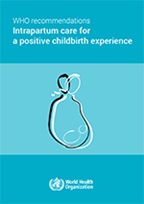
This up-to-date, comprehensive and consolidated guideline on essential intrapartum care brings together new and existing WHO recommendations that, when...
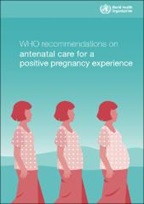
This comprehensive WHO guideline provides global, evidence-informed recommendations on routine antenatal care. The guidance aims to capture the complex...
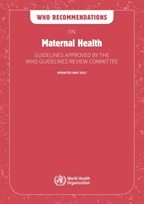
WHO recommendations on maternal health
This publication on WHO recommendations related to maternal health is one of four in a series; the others relate to newborn, child and adolescent health....
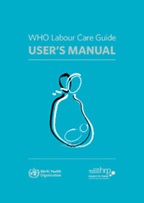
WHO labour care guide: user’s manual
The WHO Labour Care Guide is a tool that aims to support good-quality, evidence-based, respectful care during labour and childbirth, irrespective of the...
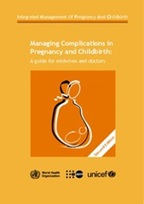
WHO guide: Managing Complications in Pregnancy and Childbirth
While most pregnancies and births are uneventful, all pregnancies are at risk. Around 15% of all pregnant women will develop a potentially life-threatening...
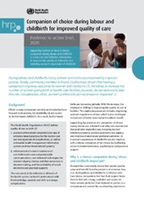
WHO guide: Companion of choice during labour and childbirth
During labour and childbirth, many women want to be accompanied by a spouse/ partner, family, community member or friend. Studies have shown that having...
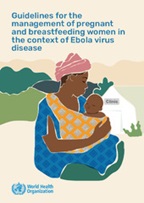
WHO guide: Management of pregnant women in Ebola
A paucity of scientific evidence exists on how to best treat pregnant or breastfeeding women with suspected or confirmed Ebola virus disease (EVD). Historical...

This guideline examines the evidence and makes recommendations and remarks on the implementation of some of the details of breastfeeding counselling, such...
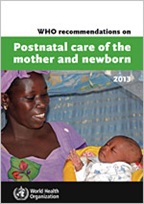
The postnatal period is a critical phase in the lives of mothers and newborn babies. Most maternal and infant deaths occur during this time. Yet, this...
Respectful care
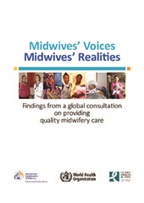
WHO & partners report on Midwives’ Voices Midwives’ Realities
This report documents the voices and experiences of 2 470 midwifery personnel who provide care to childbearing women and their newborns in 93 countries....
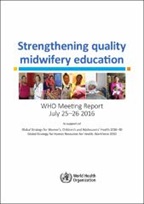
The meeting was convened in the context of increasing evidence to indicate that a consistent barrier to the provision of quality midwifery care is inadequate...
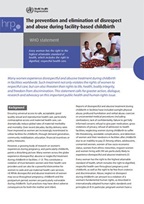
WHO guide on Elimination of disrespect and abuse during child-birth
Many women experience disrespectful and abusive treatment during childbirth in facilities worldwide. Such treatment not only violates the rights of women...
Maternal mental health
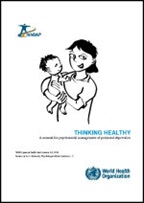
WHO report: Thinking Healthy
The Thinking Health manual outlines an evidence-based approach describing how community health workers can reduce prenatal depression through evidence-based...
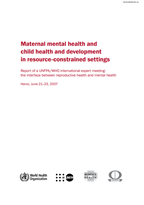
WHO report: Maternal mental health and child health and development in resource-constrained settings
The UNFPA–WHO International Meeting on the Interface Between Reproductive Health and Mental Health, Maternal Mental Health and Child Health and Development...
NCDs and maternal health
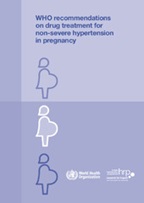
The primary audience of these recommendations includes healthcare providers who are responsible for developing national and local health protocols (particularly...
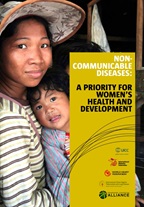
NCD Alliance: A priority for women's health and development
Non-communicable diseases (NCDs), namely cancers, cardiovascular disease, chronic respiratory diseases and diabetes, are chronic, costly but largely preventable...
Maternal nutrition
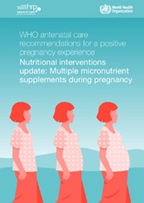
The World Health Organization’s comprehensive antenatal care (ANC) guideline WHO recommendations on antenatal care for a positive pregnancy experience...
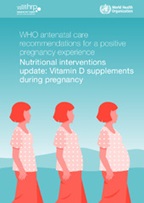
WHO guide on Vitamin D supplements during pregnancy
The World Health Organization’s comprehensive antenatal care (ANC) guideline WHO recommendations on antenatal care for a positive pregnancy experience...
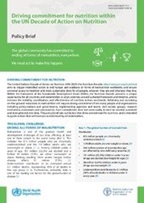
Driving commitment for nutrition: WHO & partners policy brief
The Nutrition Decade presents an unprecedented opportunity for accelerating country-led actions to end hunger, eliminate all forms of malnutrition, and...
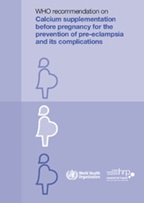
WHO recommendation on calcium supplementation before pregnancy for the prevention of pre-eclampsia and...
The primary audience of this recommendation includes health professionals who are responsible for developing national and local health protocols (particularly...

.png?sfvrsn=6d0e27cd_1)



